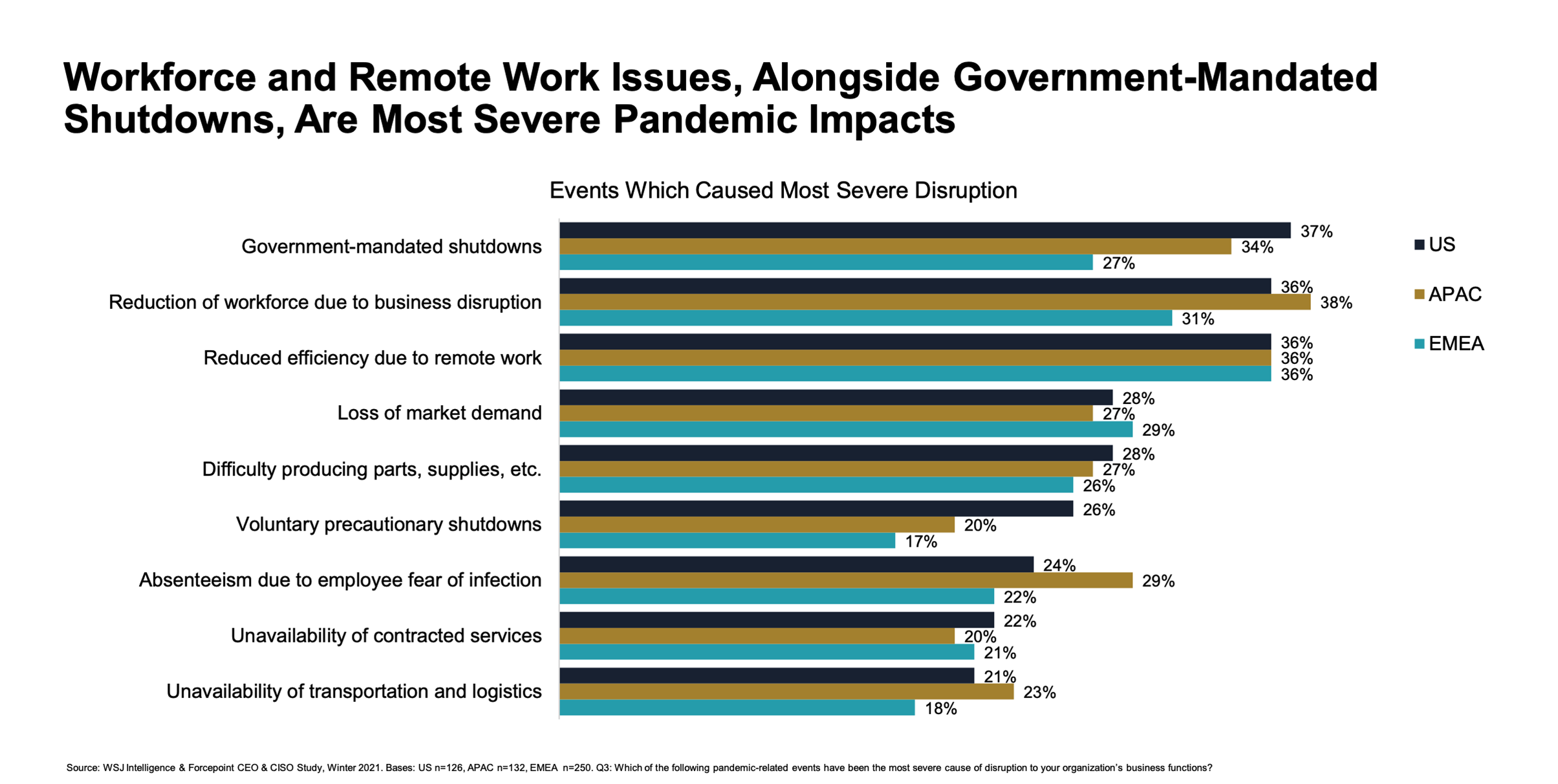It is well known that the pandemic has accelerated digital transformation for organisations to support their remote workforce as well as ensure business continuity.
However, while many were affected in different ways due to the pandemic, APAC organisations felt more disruption compared to Europe and US. According to a study released by Forcepoint that surveyed 508 global CEOs and CISOs, The C-Suite Report: Business and Security Strategies for Today’s Unbound Enterprise, APAC respondents reported higher levels of disruption in seven out of the 12 departments measured.

The disruptive causes most commonly cited by APAC respondents were:
- Reduction of workforce due to business disruption (38%)
- Reduced efficiency due to remote work (36%)
- Government mandated shutdowns (34%)
Why digital transformation was more tumultuous for APAC
Elaborating on why APAC was more affected, Nick Savvides, Senior Director of Strategic Business, Asia Pacific for Forcepoint said the region is more diverse and in the developing economies, home network connectivity and home-based equipment availability are a big concern and challenge. This led to many organisations struggling at the beginning.
“Home users had to organise broadband, new devices had to be purchased, and processes had to change. There were also contractual complexities, with many business process outsourcing providers having written in their contracts that services had to be delivered from specific sites.”
In the more developed APAC economies, Savvides said that while flexible working arrangements were available in most knowledge-based businesses, those businesses were not prepared for the scale of remote work. The culture of working in the office could not be changed overnight. Disruptions were also felt more in industries such as manufacturing where work could not occur remotely.
“In many regulated industries in APAC, the requirements for certain security controls prevented the adoption of cloud services. In addition, there are many data sovereignty considerations that prevented rapid remote working transitions,” he said.
Future of work operations
Regardless, the pandemic has created an ecosystem of enterprises operating in an environment that is not limited to physical infrastructures. Leaders have also identified cybersecurity as the key to their business advantage with 45% stating they have greatly accelerated digital transformation as a result of the pandemic, 48% reporting cybersecurity’s bigger role in enabling innovation and 41% agreeing that it delivers a competitive edge.
“Industry leaders are emphatically pointing to a very different future for cybersecurity,” said Savvides. “When 90% of leaders believe the biggest challenge is securing anywhere workers and cloud services, it’s clear that infrastructure- or access-oriented security tools can no longer keep up with the needs of today’s unbound enterprise.”









